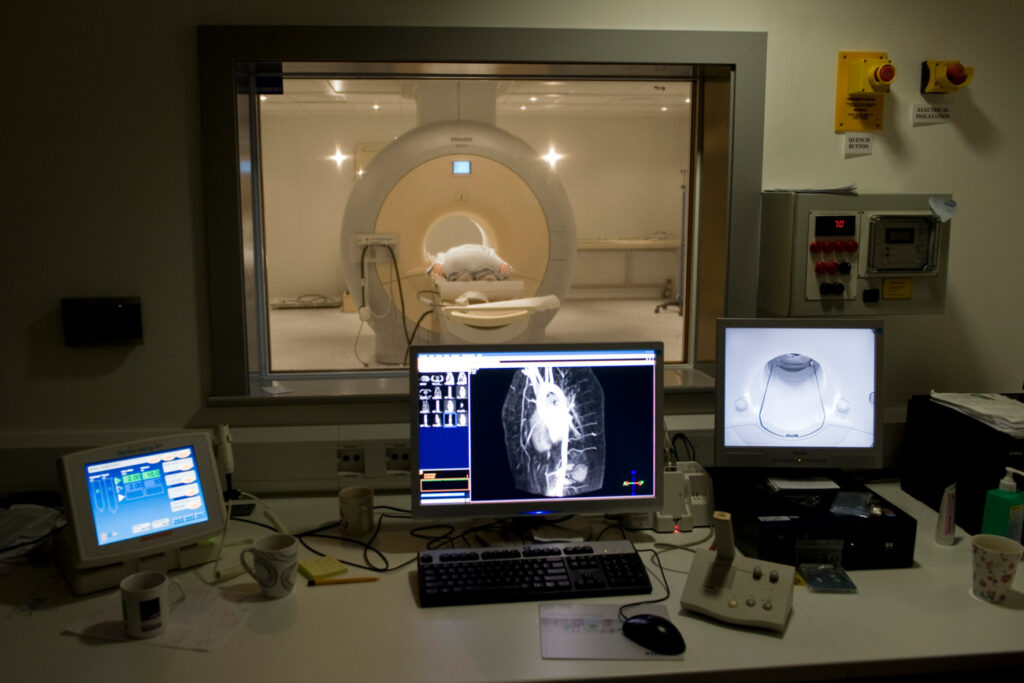Imaging (Scans)
Your team may schedule you for scans at various points in your treatment pathway including:
Timing of Scans
- Initial imaging will be at the time of diagnosis.
- If you are going for an operation you may need a scan before surgery and again 72 hours later.
- If you are not getting an operation initially it is likely you will have a scan around three months after diagnosis to check whether there is any change.
- If you are receiving radiotherapy or chemotherapy, then scans will be done to assess your response during and after treatment. The exact timing may vary so you should discuss this with your team.
Specialist Scans
Regional centres can perform some specialised scans. Your team will refer you to these centres if needed. This may include:
- Nuclear medicine scans with radioactive isotopes
- Specialised MR scans showing how the brain works and what the blood flow is
- Scans during operations which help to guide the surgery. These have specific techniques and require specialist staff to do the scan. These staff also work with specialist surgeons who carry out the operation.
All patients will have access to these if they need specialist surgery, but this is not done in all hospitals.

Standardising Care
The staff who request, perform and report on X-rays and scans have come together across Scotland to draw up a plan for brain tumour diagnosis. This covers which scans should be done and when, and what the precise protocol should be for doing each scan. National guidelines for patients with brain tumours help ensure that you will receive the same care wherever you are.
One challenge is that the machines which do the scans may be different models in different hospitals. There are even mobile scanners for MR (magnetic resonance) which can be moved to where they are needed.
In Scotland the clinical management pathway consensus outlines the process to be followed. Also, that all your clinical details and symptoms will be put on a request form so this can be reported. If you have a scan in your local hospital this will then transfer to any other hospital if you travel to get an operation.
Pathology
When a sample of your tumour is sent to the laboratory it will be tested by a pathologist who will report whether this is a brain tumour and what type.
All brain tumour samples will be checked over by a specialist neuropathologist. This is a doctor who attends the multidisciplinary team meetings to help decide management for patients. This specialist needs to be a member of the British Neuropathologist Society. They undertake regular training and assessment to ensure high standards.
Pathology reports follow a standard set by the Royal College of Pathologists which describes all the detail required to make decisions on treatment.
A target is set for a complete pathology report within 21 days after taking a sample (biopsy) or after resecting a tumour at operation. Sometimes additional molecular or genetic tests are required which need to be sent away for analysis. This can cause delays in providing the final report. If this detail is required to decide on the best treatment, then this may mean holding off on starting treatment until complete.